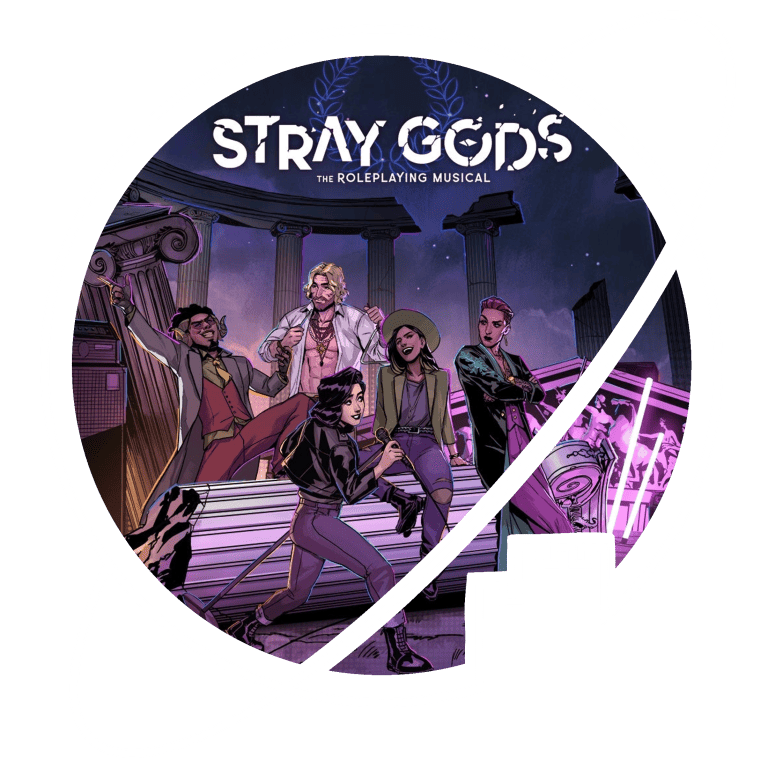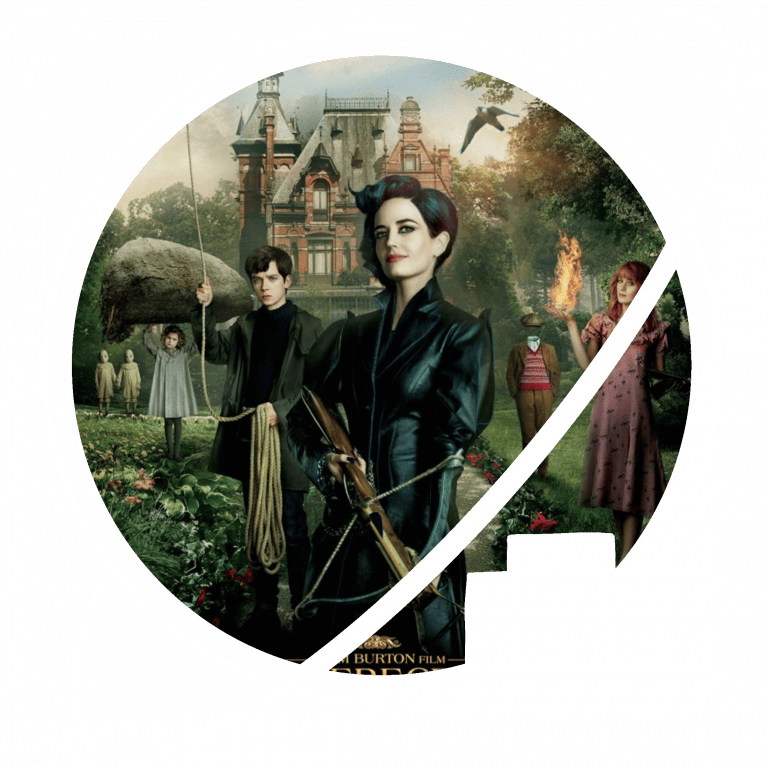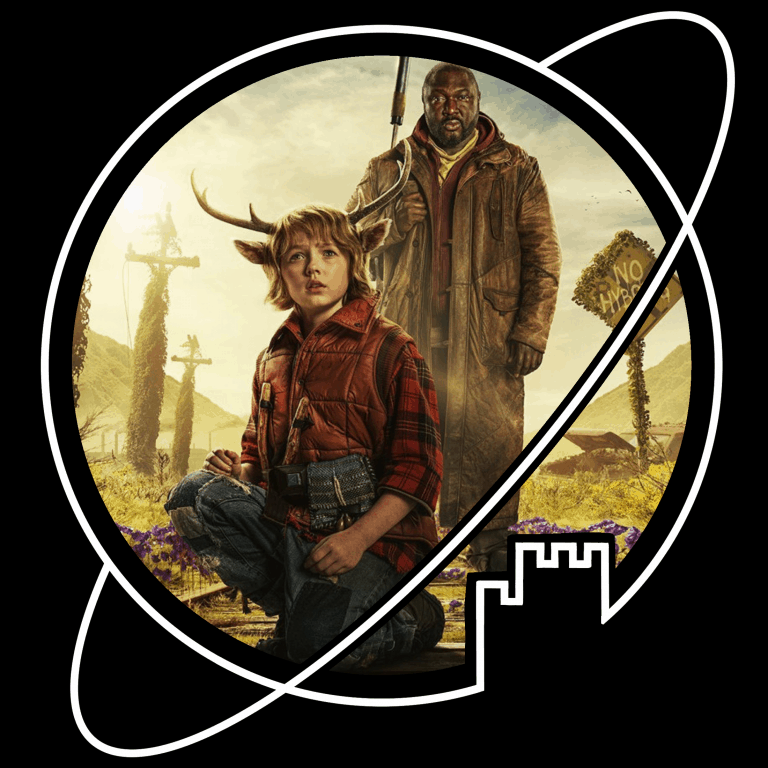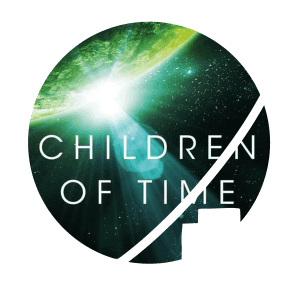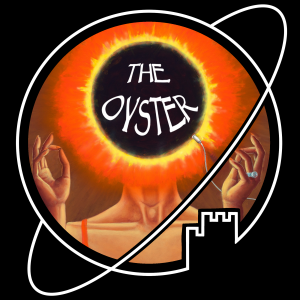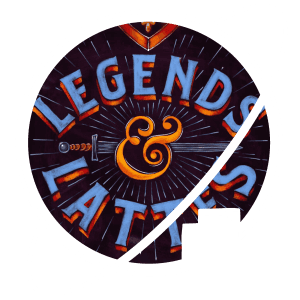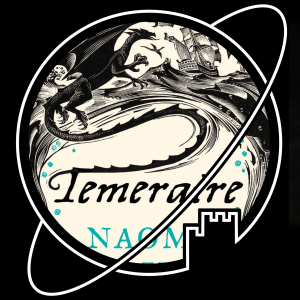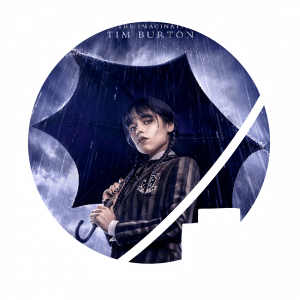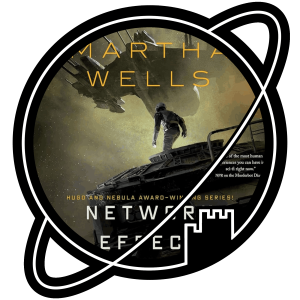Welcome to the Escape Velocity Collection!
We are an opinionated group of friends reviewing all sorts of fantasy and science fiction media. Don’t forget to get to know the curators and visit our curated Collection, where we discuss the stories that never cease to transport us to another world.
Will you escape with us?
LATEST POSTS:
- TV show developed by Rick Riordan and Jonathan E. Steinberg for Disney+
- Based on Percy Jackson & the Olympians by Rick Riordan
- Starring Walker Scobell, Leah Sava Jeffries, Aryan Simhadri, Daniel Diemer, Dior Goodjohn, Charlie Bushnell and others
- Released 19 December 2023
- 1 Season of 8 Episodes, renewed for a second season
Percy Jackson – named after the hero Perseus in ancient Greek mythology – is an ordinary twelve-year-old boy trying to survive in a world that thinks him weird. After a fateful trip to a museum, however, he quickly finds his world uprooted. Apparently, Greek gods and monsters are not a thing of the distant past, but still very much around. In addition to that, they are all hunting for Percy because he is a demigod.

This review relates to the first season only
There wasn’t much thought behind Jasmijn and me watching Percy Jackson and the Olympians. I was aware that Rick Riordan’s books are very popular, and – despite the bad movie adaptations some ten years back – I hadn’t seen any fuss about this latest adaptation. So when we were looking for something new to watch, this seemed like a good enough reason to discover what this franchise was about. Also, ancient Greek mythology is neat.
By the Muses, this show did not disappoint me. In fact, I liked it even more than I dared to hope in the best of circumstances. Though I thought the first episode was just okay, the episodes thereafter had me hooked every time. Everything just clicks: the pacing, the humour, the incredible acting (both from young and experienced actors), the insane production value.
Let’s elaborate on that last point. Clearly, there’s a lot of money in this show. In fantasy/science fiction productions this often means that everything is enhanced with CGI that’s barely convincible. However, Percy Jackson and the Olympians used this money to create incredible set pieces and props, with the CGI mostly in a supporting role. The highlights for me were probably the few mythological creatures that show up throughout the series.
The cast and crew were clearly driven while filming this series. I think it helped that Rick Riordan was also very involved with the production. There is – what I would like to call – ‘soul’. Rick Riordan once started writing his books to help his son feel better about his ADHD and dyslexia. It’s at its core a story about accepting each other’s differences and recognizing the strength in this diversity. Growing into your own and daring to question why people do things as they have always been done. Strong themes, that all those involved seem to clearly understand. Another relatable subject for some: the challenges that can come with family. And as we all know, the Greek gods are an excellent example of great family dynamics.
The main argument I can think of to dislike Percy Jackson and the Olympians, is when one doesn’t like watching younger actors and a story that’s also aimed at a younger audience (and thus all the effects this has on the storytelling choices). The acting skills of the three main actors are excellent though, and their dynamics are fun to watch.
For those who tend to get attached to the same actors as I; I was pleasantly surprised by the appearance of Toby Stephens, Lin-Manuel Miranda , Lance Reddick (who recently passed away, tragically), and Timothy Omundson. I also really liked Adam Copeland and his portrayal of Ares. Gods are cool.
Tagged:
See also:
- Novel written by Arthur C. Clarke
- Published in 1953
- Standalone


Listened to the audiobook with Greg Wagland – good narrator.
Borderline 2.5/3 star review.
When I set out to write this review, I had an idea in the back of my mind to comment on the difficulty of translating 1950’s science fiction, which was often serialised and published in magazines (see for example, Foundation), to the modern reader, who expects coherent novel-length stories.
You may imagine my surprise when I found out that Childhood’s End was (mostly) published as a single novel, with (most) of the discontinuities of the stories a feature rather than a bug.
Whether intended or not, I found Childhood’s End a rather disjointed novel. It contains several only superficially connected themes, plotlines and characters, each vying for the reader’s attention. As a result, I felt none of the themes, none of the plotlines and none of the characters got the attention they really deserved. I didn’t dislike any of them – each of the lines is individually interesting – but there was just not enough space to go around.
That is a pity, because the themes are good. I was particularly drawn in by the question of how humanity might change after first contact if the aliens stuck around to babysit us. Clarke’s vision – of vanishing ambition and disappearing artistic and intellectual merit – is very interesting, but I don’t feel like Clarke really delved into it. Childhood’s End presents the idea but never gets the emotional impact across because the novel is much to busy grappling with everything else it wants to show. That sense of missed opportunity was illustrative for the novel as a whole.
Admittedly, Childhood’s End is an ambitious and imaginative novel and I think Clarke deserves praise for trying to tackle a number of interesting themes. Still, I can’t shake the feeling Childhood’s End would have been better of as a three separate stand alone novels.
I want to add that Clarke was surprisingly accurate with several of his predictions, foreseeing the space race between the US and USSR (even though his misjudged the timing) and critiquing a society that was so flooded with entertainment that people had up to three (!) hours of screen time a day. These kinds of gems never fail to bring a smile to your face and these types of revelations alone make reading science fiction from the Golden Age worth it for me.
Whether Childhood’s End is worth your time depends on what you want from your novels – it is not a streamlined or thematically coherent novel that modern publishers would sell. If you want to read Clarke and that is what you’re looking for, The Sands of Mars is a much better bet. But Childhood’s End is brimming with interesting ideas and it is well-written and well enough paced that it never gets boring – and exactly because it would never see print in the 2020s, it might be fun to give a shot.
Tagged:
See also:
- Book written by Paul Lynch
- Published August 2023


This book was a ‘slow burner’ for me. It wasn’t one of those books that you finish almost in one sitting because you cannot put it down, but weeks and even months after finishing it, this story still regularly pops up in my mind without warning.
The drama is portrayed on a very human level, zooming in on the domestic. You find out about what is going on in the wider world mostly though the consequences that it has for the daily lives of the main characters, but you don’t find out much beyond that. The characters are not necessarily all that likable, and their decisions are at times very frustrating. But because of that they are all the more realistic.
The book isn’t some epic thriller with lots of action, but I think that made it only more terrifying. Slowly but steadily you are being led from a familiar world to one that is completely unrecognizable. It slowly leads you along, until, like Eilish, you realise that it might already be too late. Moreover, this book does not offer you the consolation that it is ‘only a story’: part of the terror is that this is the daily reality of so many people around the world.
The ‘regime’ in this book is faceless and untouchable. There’s no evil dictator, and you don’t get to know the names of any of the major leaders. There is also no clear religious, political or otherwise ideological motive for their actions, except for the universal hunger for power and control. This heightens the sense of powerlessness that you feel while reading this book: you can vividly feel Eilish’s immense frustration and anger, but above all her fear that anything she does will bring harm to her children. The decision not to give the regime a face or an ideological background makes sense, because this book is not about those in power. It’s about the terrible choices that people have to make in the face of violence that is inflicted upon them by forces outside of their control.
While reading, you cannot stop wondering: what would I have done? I hope I will never have to find out the answer.
Time to get to know the Escape Velocity Collection’s curators! How? By asking them the questions that really matter! Let’s see what our curators have to say…
Today’s question is:
Will you watch the Rings of Power season 2?
I might? Honestly, I’m not excited: in the run up to the release of the second season I rewatched a couple of key scenes from the first season, and if they raised any hairs it was because of cringe rather than excitement.
I think the first season was good sparingly, decent at times, and poor most of the time.
The Rings of Power season 1 was let down by poor writing, both in the plot and in the dialogue. These adaptational choices are at the core of what makes a story compelling, and in season one the writers just failed to hit the mark over and over.
I am not confident that season 2 will improve – it would require too much of a break in style. I’m afraid that the Rings of Power will continue to focus on “epic’ moments over coherent characters or narrative. And that would probably mean the second season would be just as much a dud as the first.
Perhaps I’ll watch the Rings of Power season 2 just to keep up – but I’m not particularly looking forward to it.
I think Rings of Power season two will go the way of every show I’ve tried to watch recently. I will watch 2.5 episodes, and then forget it exists.
It happened to House of the Dragon season 2, Emily in Paris season 4 (I never watched seasons two or three, with good reason apparently) and it will happen again. The only reason I finished the first season of the Rings of Power is probably because we watched it together.
It also helps that Peter pays for Amazon Prime. I don’t want to give Amazon my money, and the idea of paying them specifically to watch The Rings of Power is absolutely laughable. I genuinely couldn’t tell you what happened in season one, and I doubt anything of note will happen in season two.
Of course I’ll watch it.
And that’s what annoys me so much: everyone knows this show will have an audience no matter what, because of the legions of the Lord of the Rings–fans who would do anything to feel again, even in the remotest way, like they felt when they first read or watched the Lord of the Rings.
And this means that the makers of the show (or let’s face it: Amazon), can get away with throwing in some gorgeous shots of Rivendell and some incredibly in your face ‘throwback’ references, without having to go to the effort of actually creating a good story.
But who knows, maybe I’m wrong and the story will manage to grab me in the second season. There’s always a chance…
Let me give you all some insight into the inner workings of humans, specifically from the perspective of a spiritual counsellor (in training).
There are very many external forces that can make our lives miserable or hard, and unfortunately, quite a few of these external forces can’t be easily thwarted by our own hands, if they can be thwarted at all. Yes, this is a rather bleak statement, but bear with me…
As if the existence of these unbeatable external forces isn’t tiresome enough, our brains are also prone to some rather unhelpful thought patterns that can make every experience worse.
That’s what brings us to ‘ambivalence’: experiencing two (or more) contradictory emotions, thoughts or beliefs at the same time. Most people have a hard time dealing with ambivalence. Not only in others, but especially within themselves. We like to be consistent. We like things to be clear.
As a result, we feel embarrassed or revolted by one of these contradictions within ourselves and might have the urge to repress it, thinking that this might solve the discomfort we feel.
However, the truth is that ambivalence was never really the problem to begin with. No, the problem was always our inability to deal with the ambivalence as an essential part of our being.
I’ll most likely watch season 2 of the Rings of Power, I can’t help it. And if season 1 was a promise of what can be expected, I’ll spend half of the time scoffing at subpar pacing, missed opportunities, and unnecessary deviations from the source material. The other half of the time, I’ll simply enjoy every time I see a glimpse of an dwarf or an ent or some beautiful landscape.
This is the ambivalence that exists within me…
That’s it: another soul-searching question answered!
Still curious? Visit each curator’s page to see what they’ve recently been up to!
Check out our previous run ins with Amazon Prime's The Rings of Power here:
- Novel written by Arthur C. Clarke
- Published in 1951
- Standalone


Listened to the audiobook with Greg Wagland – good narrator.
There is always something fascinating about reading science fiction from before some of humanity’s milestones in space exploration. It has not even been a century, but there is such a gulf separating especially the details of imagined and real life. With science fiction this old, you can laugh at all things the authors got wrong, and marvel at the things they got right.
In The Sands of Mars, I was actually rather surprised at how much thought Clarke seemed to have put into the colonisation of Mars; my experience with 1950’s science fiction is that whiIe it may be well thought-out, it doesn’t generally care about accuracy. The Sands of Mars is different: I would label it ‘hard science fiction’, or at least, a 1950’s attempt at hard science fiction.
Having said that, there is a lot in The Sands of Mars that is patently ridiculous to the modern reader, such as thriving vegetation on Mars, print newspapers in the village-size colony, or the fact that all women on Mars appear to be secretaries(?). But it is exactly these kinds of ‘misses’ that make you appreciate the ‘hits’ all the more: if Clarke was writing from such a different society and with so little knowledge, then each time he got it right is pretty impressive.
Still, if you’re looking for a slightly more recent (though the 1990’s aren’t exactly modern either) novel on the colonisation of Mars which fits more closely with our current understanding of the physics, I would rather recommend Kim Stanley Robinson’s Red Mars instead.
Back to The Sands of Mars – it’s fascinating for it’s historical vantage and in the history of sci-fi, but is it any good as a novel?
I rather liked Clarke’s playful twist of writing the novel from the perspective sci-fi writer Martin Gibson who gets invited to describe the Mars colony, who actually gets to experience that disconnect between what he wrote and predicted with reality – it gives the novel a nice ‘meta’ feel without feeling forced.
Besides that clever premise, I think the plot is really nothing special – it has the typical 1950s style of mostly taking place in armchairs and behind office desks, with the added drawback of Gibson never quite taking charge of the goings on. Gibson is a wonderful fish-out-of-water that other characters can explain the details of spaceflight and living on Mars to, but he is trailing the plot basically all the way to its resolution (perhaps with one exception where he entirely accidentally stumbles upon a relevant development).
On the other hand, I think Gibson comes to life quite well for a protagonist in an early sci-fi novel – he seems quite a bit more complete than most 1950’s British gentleman-heroes.
In the end, I think the combination of a multidimensional main character and the interesting 1950s vantage make The Sands of Mars well worth reading – though always realise that you’re traveling back in time some three quarters of a century as much as you travel into an imagined future.
- Novel written by Heather Fawcett
- Published in January 16, 2024
- Part two of the Emily Wilde series


As you can probably tell from my 4,5 star review of Emily Wilde’s Encyclopedia of Faeries, I really enjoyed the first book in this series. It’s just the right amount of cosy with some stakes to keep it interesting. I actually rushed out to buy the sequel once I finished it because I didn’t want to leave the world of Emily Wilde quite yet.
Emily Wilde’s Map of the Otherlands did not disappoint. It has all the same cosy vibes as Encyclopedia of Fairies, though perhaps they don’t charm me as much as they do in the first book. However, the plot is slightly stronger in this one. We also finally get some indication of when the story takes place, something that is left out of Encyclopedia of Faeries. It seems to be set in the 1910’s.
I liked the characters a little less in this book. Everyone seemed a little flatter than they were in the first book, and the side characters of this book weren’t as charming as their predecessors.
Overall, Emily Wilde’s Map of the Otherlands is a worthy successor to Encyclopedia of Faeries. Maybe it’s not quite as good, but if you loved the first book, it’s definitely worth picking up the sequel!
Tagged:
See also:

Review: Percy Jackson and the Olympians – Disney
Percy Jackson – named after the hero Perseus in ancient Greek mythology – is an ordinary twelve-year-old boy trying to survive in a world that thinks him weird. After a fateful trip to a museum, however, he quickly finds his world uprooted. Apparently, Greek gods and monsters are not a thing of the distant past, but still very much around. In addition to that, they are all hunting for Percy because he is a demigod.

Review: Childhood’s End – Arthur C. Clarke
Mankind is on the verge of nuclear disaster when huge ships appear over Earth’s great cities and the alien Overlords assume benevolent control over the human race, guiding it firmly away from self-destruction, but from artistic and scientific ambition as well. Among the masses, there are a few who rebel against the kind but firm alien dictatorship, each in their own way.

Review: Prophet Song – Paul Lynch
From the cover:
On a dark, wet evening in Dublin, scientist and mother-of-four Eilish Stack answers her front door to find the GNSB on her step. Two officers from Ireland’s newly formed secret police are here to interrogate her husband, a trade unionist.
Ireland is falling apart. The country is in the grip of a government turning towards tyranny and Eilish can only watch helplessly as the world she knew disappears. When first her husband and then her eldest son vanish, Eilish finds herself caught within the nightmare logic of a collapsing society.
How far will she go to save her family? And what – or who – is she willing to leave behind?

Curator Question: Will you watch The Rings of Power season 2?
Another question for our curators: How do they feel about the second season of Amazon’s The Rings of Power? They watched season one together, to generally mediocre reviews…

Review: The Sands of Mars – Arthur C. Clarke
Famous science fiction author Martin Gibson is invited to board the Ares, the first large-scale space passenger liner, on its maiden voyage to humanity’s experimental colony on Mars. As he befriends the crew of the space ship and explores the small settlements on the red planet, Martin Gibson quickly finds that his previous works were rather less accurate than he had hoped – and that there are all kinds of plans in motion behind his back.

Review: Emily Wilde’s Map of the Otherlands – Heather Fawcett
After finishing her Encyclopedia of Faeries, Emily Wilde sets out to create a map of the “Otherlands”, the realms of Faerie. She plans to find the nexus, a door to several faerie realms, including the world of her colleague (and exiled faerie king) Wendell Bambleby. When Wendell suddenly finds himself in the crosshairs of his stepmother’s assassins, he and Emily take off to find the nexus, and face Wendell’s aggressors, in the Austrian Alps.










